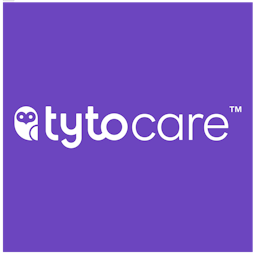Teladoc Health enables health systems to offer virtual care services across the care continuum – from ambulatory care to emergent care to inpatient care, and even care in the home.
Inpatient Care
Partnering with Teladoc Health empowers hospitals to deliver an intuitive, seamless new standard of inpatient care. Hybrid care models – those that leverage both in-person and virtual care when appropriate – allow hospitals and health systems to build more robust care teams around every patient, allowing bedside staff to focus on the most critical patient needs.
- Expand capacity and capabilities: Increase staff-to-patient ratios, augment staff coverage during volume surges, reduce burnout and expand staff training opportunities. Specialists can virtually consult during inpatient emergency situations and intensive-care locations, adding expertise and guidance for in-person staff.
- Increase satisfaction: Clinicians and staff appreciate the convenience, added support and improved efficiency. Patients appreciate the simplicity, ease, safety and added attention that comes from a hybrid care experience.
- Drive financial stability: An enterprise-wide approach to virtual care can help address some of the core issues that challenge financial stability. Maximize the value of your existing digital investments and drive operational efficiencies and cost-savings at scale.
Virtual services can include:
- Medical specialties and subspecialties including behavioral health, cardiology, diabetes, infectious disease, nephrology, neonatology, neurology, oncology, pulmonology, palliative care, physical and occupational therapy
- Virtual nursing
- Administrative support
- Pharmacy
- Social services
- Scheduling, admissions and discharge
- Imaging
- Interpretive services, including over 260 languages
- Provider virtual consults
- Virtual rounding/telerounding
- TeleICU visits
- Virtual sitting/Telesitting
- Remote patient monitoring
Emergent Care
Teladoc Health can help hospitals and health systems increase access to life-saving care by enabling immediate access to specialists when the minutes matter most. With quick, timely diagnoses provided through our easy-to-use connected care solutions, emergent care departments can help save lives and increase recovery likelihood for more patients.
- Deliver timely treatment to more patients: Allow patients to be seen within minutes to help determine the best treatment pathway. Increase coverage and response time to most appropriately manage acuity levels. Expand access to a broader range of capabilities, resources and treatments.
- Meet your mission: Ensure your capabilities and capacity match the needs of the people you are serving. Providing around-the-clock access to high-quality care for emergent patients helps improve health outcomes.
- Scale for growth: Employ models that can scale up or down as needs change. Virtually connect to specialists inside and outside the health system.
Virtual services can include:
- Behavioral health
- Cardiology
- Critical care
- Diabetes
- Infectious disease
- Oncology
- Neonatology
- Neurology/Telestroke
- Pharmacy
- Physician services
- Provider virtual consults
Ambulatory Care
Hospitals and health systems need an experienced virtual care partner that can help them find solutions to long wait times, barriers to care, workforce burnout, care coordination and data integration issues — and help reduce unnecessary emergency room visits, hospital readmissions and disease advancement. Managing ambulatory services through Teladoc Health’s Solo solution allows you to integrate data and connect workflows using your existing EHR to build a longitudinal view of your patients.
- Improve adherence: 24/7 ambulatory capabilities with personalized patient support can help improve adherence and reign in the impact and progression of chronic conditions.
- Reduce care fragmentation: Extending your footprint into ambulatory settings can reduce care fragmentation and help you maintain a competitive advantage in your market.
- Leverage existing technologies: The flexibility of Solo allows you to leverage your existing technologies and invest in virtual ambulatory services at your own pace.
Virtual services can include:
- Administrative Support
- 450 Medical Subspecialties including: Behavioral health, cardiology, diabetes, infectious disease, nephrology, neurology, oncology, pediatrics, pulmonology, physical and occupational therapy
- Home health
- Palliative care
- Pharmacy
- Rehabilitation
- Crisis assessments
- Education and coaching
- Provider consults
- Remote patient monitoring
- Scheduling
- Virtual visits



























